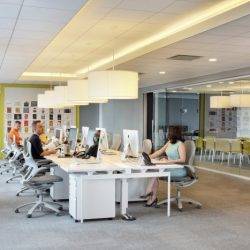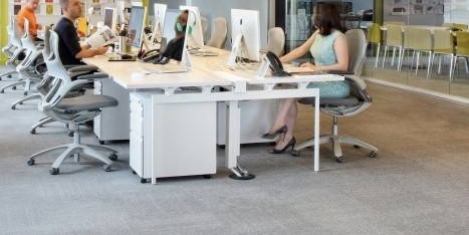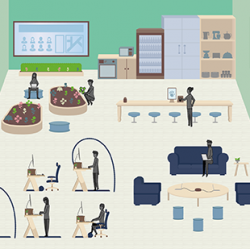March 6, 2017
US employers turn to perks and office design to increase employee retention 0
 Younger workers are less and less loyal to employers, which is driving firms to place greater emphasis on benefits, empowerment and a better working environment, according to a study from ReportLinker. The small scale online study of 500 people found that Millennials are less likely than older generations to say they’re highly committed to their employer, with just 40 percent saying they somewhat agree with this statement compared to 66 percent of older workers say they’re highly committed to their organisation. The report concludes that this is encouraging employers to introduce new ways of winning the loyalty of employees. For example, 87 percent of employees who are more involved in decision-making are also more likely to say they are committed to their employers although, as always, we should be wary of the distinction between correlation and causation.
Younger workers are less and less loyal to employers, which is driving firms to place greater emphasis on benefits, empowerment and a better working environment, according to a study from ReportLinker. The small scale online study of 500 people found that Millennials are less likely than older generations to say they’re highly committed to their employer, with just 40 percent saying they somewhat agree with this statement compared to 66 percent of older workers say they’re highly committed to their organisation. The report concludes that this is encouraging employers to introduce new ways of winning the loyalty of employees. For example, 87 percent of employees who are more involved in decision-making are also more likely to say they are committed to their employers although, as always, we should be wary of the distinction between correlation and causation.

































December 23, 2016
Presenteeism doesn’t aid productivity, so employers should set workers free 0
by Mark Eltringham • Comment, Flexible working
(more…)